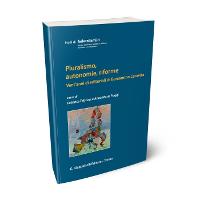
Log in or Create account
FOCUS - Human Rights N. 3 - 29/12/2017
The EU human rights obligations on trade agreements applicable in disputed and occupied territories
The EU is one of the most prominent international economic actors; moreover, several relevant occupied and contested territories are located in its neighbourhood and maintain with it economic relations. The EU is also a unique legal entity under International law, resulting from a complex system of integration among its Member states, which includes a wide range of action in many fields. Differently from other International Organizations, the EU constitutes a new legal order, with autonomous normative power, whose subjects are its Member States and the individuals (more precisely, natural and legal persons) that have rights and duties coming directly from the EU law. Since from its early days, the EU (and the EC, before) conducts its external relations with the purpose of promoting its values abroad. In this context, trade relations are considered the powerful mean to spread its values – included human rights – in partner countries. In doing so, the EU declares the aim to realize an effective positive connection between trade and human rights. The Common Commercial Policy (CCP) is probably the main instrument of the EU to promote abroad principles and values. Its trade policy has been implemented through both multilateral agreements concluded in the WTO (and before in the GATT) framework, likewise autonomously. Since its creation, the EU sets up many agreements choosing its partners on geographical/regional considerations (like the partnerships with its Neighbourhood or the ACP countries) or on pure economic considerations (i.e. the agreements concluded or negotiated with the so-called BRICs countries). The form of the agreements includes association agreements, partnership agreements and development cooperation agreements. Under a substantial point of view, the trade agreements concluded by the EU are remarkably different each other, including purely trade relationship likewise broader partnerships in which trade is only one of the aspects considered. Recently, the tendency is to conclude complex forms of integration partnership between the EU and one or more Countries (or entire geographical regions), including forms of deep trade cooperation and foreign direct investments. The Lisbon Treaty introduces an integrated mechanism called “External Action” which constitutes a complex integration among the political actions with the material actions of the EU in a unitary system. The CCP is now included together with the CFSP and the ESDP in this mechanism. Principles and goals of the External Action are common to all the matters included in it. Article 5(3) TEU establishes that “in its relations with the wider world, the Union shall uphold and promote its values and interests and contribute to the protection of its citizens. It shall contribute to peace, security, the sustainable development of the Earth, solidarity and mutual respect among peoples, free and fair trade, eradication of poverty and the protection of human rights, in particular the rights of the child, as well as to the strict observance and the development of international law, including respect for the principles of the United Nations Charter”. In addition, the Article 21 TEU – the opening article of the Title V named “External Action” – underlines that “the Union's action on the international scene […] shall seek to develop relations and build partnerships with third countries, and international, regional or global organisations which share the principles referred to in the first subparagraph. It shall promote multilateral solutions to common problems, in particular in the framework of the United Nations”. Consistently, Article 207(1) TFEU restates that human rights considerations is one of the principles guiding the Union’s external activities. Therefore, the EU values guide the action of the EU in its external policy. As established by Article 2 Treaty EU, these values are: democracy, rule of law, human rights and fundamental freedoms, human dignity, principles of equality and solidarity, respect for the principles of the UN Charter and the International law. Consistently, the objectives of the External Action, as defined by Article 21(2) Treaty EU, are (among others): i) consolidation and support of democracy, human rights and principles of International law; ii) prevention of conflicts and strengthen international security; iii) foster the sustainable economic, social and environmental development of undeveloped countries; iv) encourage the integration of all countries into the world economy, including through the progressive abolition of restriction on international trade... (segue)
NUMERO 1 - ALTRI ARTICOLI
-
ITALIA - DOTTRINA
Prime osservazioni sulla riforma organica del Regolamento del Senato
ITALIA - DOTTRINALa ricostruzione concettuale della nozione di 'danno ingiusto' nell'ambito dell'azione amministrativa e la sua ripercussione sul rapporto organico del funzionario
ITALIA - DOTTRINAI servizi culturali come servizi pubblici
-
ITALIA - DOTTRINA
L'Adunanza Plenaria n. 9/2017 si pronuncia sul ruolo del fattore tempo nell'esercizio del potere repressivo della p.a. in materia urbanistico-edilizia
-
ITALIA - DOTTRINA
Eccesso di potere giurisdizionale e sindacato della Cassazione sulle sentenze del Consiglio di Stato
ITALIA - DOTTRINAProgrammazione e progettazione nel codice dei contratti pubblici
ITALIA - DOTTRINALa trasparenza negli appalti pubblici



 Registrati
Registrati Login
Login
 Riforme istituzionali e forma di governo
Riforme istituzionali e forma di governo Lavoro Persona Tecnologia
Lavoro Persona Tecnologia Osservatorio di Diritto sanitario
Osservatorio di Diritto sanitario Osservatorio Trasparenza
Osservatorio Trasparenza Africa
Africa Human Rights
Human Rights America Latina
America Latina Territorio e Istituzioni
Territorio e Istituzioni Storico focus
Storico focus Scarica il Documento integrale
Scarica il Documento integrale
 STUDI FEDERALISMI
STUDI FEDERALISMI





25/01/2023
14/10/2022
18/05/2022
22/09/2021
28/12/2020
27/07/2020
05/02/2020
04/10/2019
01/05/2019
26/12/2018
29/10/2018
25/06/2018
29/12/2017
28/07/2017
13/03/2017
07/10/2016
17/06/2016
22/01/2016
25/09/2015
03/07/2015
03/04/2015
16/01/2015
24/10/2014
20/06/2014
28/03/2014
20/12/2013
16/09/2013
17/05/2013
15/02/2013